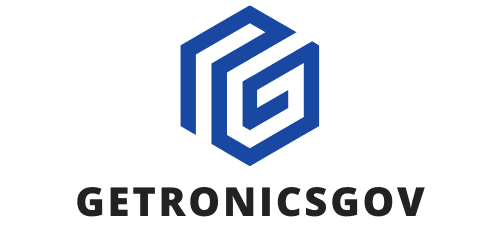What Dietary Protocols Are Advised for Ultra-Endurance Athletes with Type 1 Diabetes?

The Importance of Exercise and Dietary Management
For ultra-endurance athletes living with type 1 diabetes, mastering the delicate balance between exercise, dietary intake, and insulin management is a crucial factor in sustaining peak performance. Here, we delve into key research and recommendations around the specific dietary protocols these athletes should observe, combining scholarly evidence from databases such as Google Scholar, PubMed, and CrossRef.
Exercise is a fundamental pillar of maintaining good health, particularly for individuals with type 1 diabetes. It aids in improving blood glucose control, enhances insulin sensitivity, and reduces cardiovascular risk. However, exercise can also be a double-edged sword for these athletes due to the risk of hypoglycemia, particularly during prolonged high-intensity activity.
Lire également : How to Program Treadmill Sessions for Maximum Speed Development in 100m Sprinters?
Thus, the integration of careful dietary management becomes paramount. The dietary protocol for ultra-endurance athletes with type 1 diabetes should be tailored to the individual and should account for factors like the type and intensity of exercise, the timing and composition of meals, and the athletes’ glucose levels before, during, and after exercise.
Balancing Carbohydrate Intake
Carbohydrate (CHO) intake is an essential factor for athletes with type 1 diabetes. Carbohydrates are the primary source of energy during high-intensity activity, and hence, their intake should be increased on exercise days to maintain optimal blood glucose levels and prevent hypoglycemia.
Lire également : What Is the Role of Functional Movement Screening in Preventing Overuse Injuries in Professional Dancers?
Regular monitoring of blood glucose levels is imperative to estimate carbohydrate needs accurately. According to research documented in PubMed and Google Scholar, athletes with type 1 diabetes should aim for a CHO intake of around 30-60g per hour during prolonged exercise. This, of course, should be adjusted based on the individual’s metabolic requirements and the intensity of the activity.
It’s also suggested that athletes should consume low glycemic index carbohydrates before exercise to promote steadier blood glucose levels. Post-exercise, high glycemic index carbohydrates can be consumed to replenish muscle glycogen stores quickly.
Insulin Management and Exercise
The management of insulin around exercise is a challenging aspect for athletes with type 1 diabetes. Exercise increases insulin sensitivity, and as such, athletes may need to adjust their insulin doses on exercise days to avoid hypoglycemia.
According to a study cited in CrossRef, athletes are advised to reduce their bolus insulin dose by 50% for meals before exercise and their basal insulin dose by 20% on the day of prolonged high-intensity activity. However, these reductions should be individualized based on the athlete’s blood glucose levels, the type, and duration of exercise, and their prior experiences.
Moreover, it’s crucial for athletes to monitor their blood glucose levels closely before, during, and after exercise. They should also carry glucose tablets or a form of quick-acting CHO to treat potential hypoglycemia during exercise promptly.
The Role of Training Intensity
The intensity and duration of training also play a significant role in managing type 1 diabetes. High-intensity exercise can lead to increased glucose production, resulting in hyperglycemia, while low-intensity exercise can lead to hypoglycemia.
For this reason, athletes are advised to monitor their blood glucose levels closely during different types of exercise and adjust their carbohydrate intake and insulin doses accordingly. By doing so, they can identify the impact of different exercise intensities on their blood glucose levels and make the necessary adjustments.
Conclusion
In conclusion, the dietary protocol for ultra-endurance athletes with type 1 diabetes involves a multifaceted approach, combining careful carbohydrate management, insulin adjustments, and active monitoring of blood glucose levels. By following these guidelines and working closely with healthcare professionals, athletes can effectively manage their diabetes while sustaining high performance in their sports.
Tailored Nutritional Strategies
For ultra-endurance athletes living with type 1 diabetes, personalizing their dietary intake is a strategic maneuver to keep their blood glucose levels in check. By using resources like Google Scholar, PubMed, and CrossRef, it’s possible to delve into current research and tailor specific dietary protocols.
It is vital to understand that each athlete’s dietary management plan would highly depend on the type, intensity, and duration of the exercise, alongside consideration of the timing and composition of their meals. In addition, continuous monitoring of blood glucose levels is necessary to assess the effectiveness of these plans and make necessary adjustments.
In the context of carbohydrate intake, athletes should aim for a consumption of about 30-60g of carbohydrates per hour during prolonged exercise. Yet, this should be customized to each athlete’s metabolic needs and the rigor of the activity. Consuming low glycemic index carbohydrates pre-exercise helps maintain stable blood glucose levels, whereas high glycemic index carbohydrates are beneficial post-exercise to quickly restore muscle glycogen stores.
The PubMed research advocates for athletes to carry glucose tablets or some form of quick-acting CHO to promptly address potential hypoglycemia during their physical activity.
Implementing Appropriate Insulin Adjustments
Another aspect that requires careful handling for ultra-endurance athletes with type 1 diabetes is insulin management. This is vital to prevent hypoglycemia, which can occur due to the increased insulin sensitivity that arises from exercise. According to an article from CrossRef, athletes are recommended to cut down their bolus insulin dose by 50% before exercise and their basal insulin dose by 20% on exercise days.
However, these adjustments should depend on the athlete’s blood glucose levels, the nature and duration of the exercise, and their previous experiences. The implementation of these adjustments aims at fostering a balance between insulin, food intake, and physical activity, enabling individuals with diabetes to maintain a healthy and active lifestyle.
Conclusion
Managing type 1 diabetes for ultra-endurance athletes is a complex yet critical process. It requires a comprehensive approach that firmly focuses on carbohydrate management, insulin adjustments, and active monitoring of blood glucose levels. Resources like Google Scholar, PubMed, and CrossRef provide valuable insights based on extensive research, aiding in the formulation of personalized dietary protocols.
By continuously tailoring their dietary intake and insulin doses according to their exercise routines, and regularly monitoring their blood glucose levels, athletes can effectively manage their diabetes while maintaining peak performance. Collaborating with healthcare professionals can significantly optimize these strategies and ensure a healthy and successful sporting journey.
